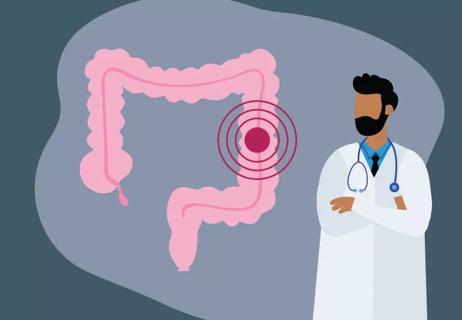Research shows it lowers cholesterol, but some of its recommendations are outdated

It can be upsetting and anxiety-inducing when your healthcare provider tells you that your cholesterol is too high. Luckily, there are more options than ever to choose from to lower your cholesterol levels and be healthier.
Advertisement
Cleveland Clinic is a non-profit academic medical center. Advertising on our site helps support our mission. We do not endorse non-Cleveland Clinic products or services. Policy
One option is to change the way you eat. You’ve probably discovered that there are many diets that promise to “Reduce cholesterol! Protect your heart!” Among them is the TLC diet, short for “therapeutic lifestyle changes.” But is it right for you? Registered dietitian Devon Peart, MHSc, BASc, RD, discusses the ins and outs of the food plan and shares if the TLC diet is still recommended today.
Born out of the National Institutes of Health’s National Cholesterol Education Program, the TLC diet was specifically developed to lower bad cholesterol. The goal? Avoid cholesterol medication entirely (or lower your dosage) by following a heart-healthy diet.
The TLC diet works to lower your cholesterol by decreasing the amount you eat of:
Advertisement
According to the TLC diet, these three factors negatively impact your cholesterol levels. The diet plan also boosts fiber intake, known for lowering cholesterol. It even recommends taking a fiber supplement if your cholesterol doesn’t come down by 8% to 10% within six weeks on the diet.
“Research shows that people who follow the TLC diet have pretty decent outcomes in terms of lowering their cholesterol and heart-disease risk,” notes Peart.
When combined with exercise and weight loss, the TLC program has been shown to lower cholesterol by 25% to 30%. That’s similar to the results you see with medication. The diet alone also lowers triglycerides (fat in the blood) and blood pressure, both heart-disease risk factors.
“We know that certain foods raise or lower cholesterol levels,” Peart says. “So, when it comes to elevated cholesterol, diet alone can in some cases reverse it.”
The TLC diet menu consists of nutrient- and fiber-rich foods to keep you feeling full. You can eat:
The diet avoids foods that:
Things you don’t consume on the TLC meal plan include:
People continue to turn to the TLC diet to improve cholesterol and heart health. But critics point to newer studies that disprove some of the theories behind the TLC diet.
“There’s a lot about the TLC diet that’s very good and still stands in terms of current research. But some aspects of it are outdated,” Peart states. She shares three problems with the TLC diet:
The basic premise of the TLC diet is that dietary cholesterol increases your risk of heart disease. But this premise is no longer accurate, says Peart. “About 20 years ago, providers advised people to stop eating eggs, for example, because they contain dietary cholesterol. They thought it would raise your cholesterol levels. But now we know that’s not usually true.”
Recent studies show that dietary cholesterol has little effect on cholesterol levels or heart-disease risk. Saturated fats and sugars are the primary culprits.
Advertisement
The TLC diet recommends that carbohydrates (carbs) make up 50% to 60% of what you eat every day. But when it comes to carbs, Peart says the important thing is the quality.
“Eating too many refined carbs, white flour foods and sugary foods can increase triglycerides, contribute to obesity and increase blood sugar. Those factors raise your risk of heart disease.”
To lose weight, the TLC diet recommends women and people assigned female at birth (AFAB) eat 1,000 to 1,200 calories a day and men and people assigned male at birth (AMAB) consume 1,200 to 1,600. “Those calorie levels are extremely low, aren’t realistic or attainable for most people,” Peart says. “Furthermore, very low calorie levels make it difficult to meet your nutrient and energy needs.”
Although experts no longer recommend certain parts of the TLC diet, it still has some key components that help you stay healthy — like lowering saturated fat and sugar and increasing fiber. These days, though, you can find those aspects of the TLC diet in other eating plans like the Mediterranean diet, one of the most well-regarded diets in the medical community.
An overwhelming number of diets claim to be the best diet for high cholesterol.
Advertisement
You’ll likely see an improvement in your cholesterol and heart-disease risk if you make some of the following switches:
Talk to your healthcare provider or a registered dietitian about your diet and the steps you can take to lower your cholesterol. Most importantly, choose a nutrient-rich way of eating that you can sustain over the long term. Because being heart healthy isn’t a fad, it’s a necessity.
Advertisement
Learn more about our editorial process.
Advertisement

The flu, RSV, COVID-19, pneumonia and more typically circulate during cold weather months. I added this change

Simple swaps improve a comfort food staple.

Simple swaps improve a comfort food staple.

CHANGE ADDED NOW Lorem ipsum dolor sit amet. Non voluptatem quibusdam qui nobis laborum in animi autem est veritatis temporibus quo impedit eius. Quo possimus quaerat sit odio omnis est commodi consequatur vel assumenda itaque. I ADDED THIS JUST NOW CHANGE

A sweet twist on this holiday dish, complete with fiber and antioxidants

There’s a fine line between emotional and physical hunger

Type 2 diabetes isn’t inevitable with these dietary changes

Applying a hot or cold compress can help with pain